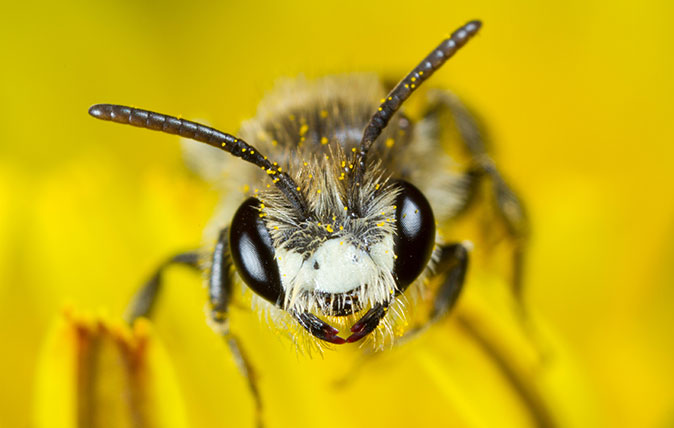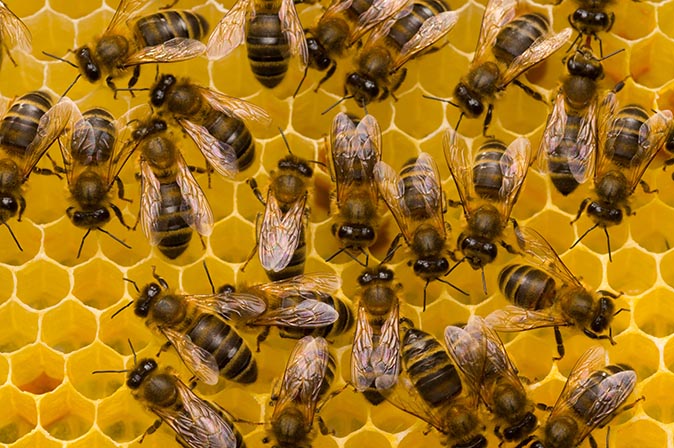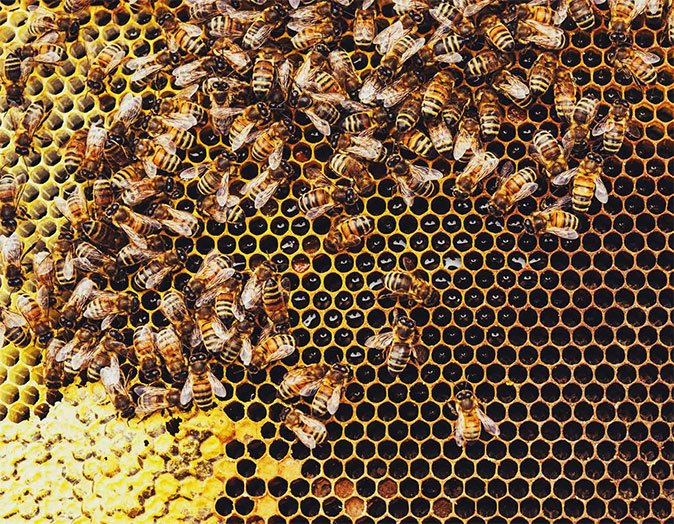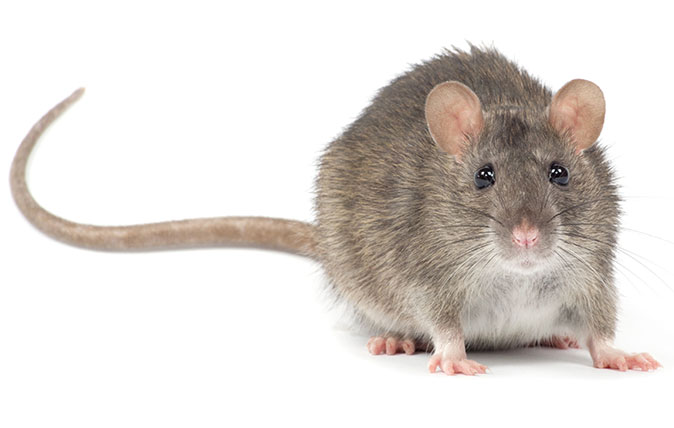Curious Questions: Are bees really busy?
We've all used the phrase 'busy as a bee' – but is it justified? Or are bees just as liable to laze around as they are to work their little furry socks off?


By the time I left university, I was heartily sick of bees. I had studied Vergil’s fourth book of the Georgics at both A-level and degree level and could pretty much tell you everything the poet knew about the blessed pollinators.
Not that I have anything against them per se – and in our garden we cultivate plants especially to attract them – but at the time, enough was enough.
Vergil’s thesis was that bees are like human society. They work, are devoted to a king (or a queen, in the case of bees) and are willing to die for a cause. Over the millennia they have gained a reputation for being industrious. ‘As busy as a bee’ is a popular idiom still in vogue. But is this reputation well-deserved?
Where bees forage, workers can make up to one hundred foraging trips a day, but their activities cease at sundown. Other bees, whose responsibilities include tending the honeycombs and cooling the nest, work around the clock but also take frequent breaks.
Drones, on the other hand, don’t leave the hive until early afternoon and rely on other bees to feed them.

Research conducted by the University of Illinois sheds some light on how busy bees are. Five honeybee colonies were used in the experiments – three in natural outdoor areas and the other two in special screened enclosures. Each hive was equipped with pairs of laser scanners at the entrances and between one and three hundred workers from each colony were tagged with tiny micro-transponders which enabled the scanners to tag their IDs, direction of travel, and time of day.
After a couple of months’ data gathering, the scientists saw that a small proportion of the bees, around 20 per cent, were much busier than the rest, accounting for up to 50 per cent of all the recorded flight activity.
Exquisite houses, the beauty of Nature, and how to get the most from your life, straight to your inbox.
These busy bees began making flights as soon as the colony became active each morning and made regular, closely spaced flights throughout the day until the colony called a halt to its flight activities in the evening.
These busy bees, though, weren’t always busy, and the levels of their activity peaked and troughed over the course of the experiment and their lifetimes. This observation encouraged the scientists to wonder whether their industriousness was an adaptive response rather than an innate one.
In other words, did the bees adapt their work patterns to prevailing conditions, and would those bees that were less energetic mend their ways in the absence of the busy bees?
Cunningly, the researchers lurked at the entrances to the enclosed hives at peak foraging time and captured all the bees that arrived there. When they looked at the flight records of the bees they had captured, the majority were in the top 20 per cent of the workforce.
For the rest of that day, activity at the feeders was quiet, but the following day, it had resumed at normal levels. Some of the bees that had been taking it easy because of the endeavours of the busy bees upped their activity levels by up to 500 per cent.

The scientists concluded that there isn’t a sharp divide in the hive between workers and slackers but that each worker keeps a check on the overall activity of the colony and adjusts its own endeavours to ensure that the overall needs of the colony are met.
Perhaps Vergil’s simile that bees reflect human society is more spot on than I thought. Bees aren’t busy per se but, like humans, do enough to get by.
So now we know!
Martin Fone is author of 'Fifty Curious Questions', from which this piece is an excerpt – find out more about his book or you can order a copy via Amazon.

Curious Questions: How do you make the perfect cream scone?

Credit: Alamy
Curious Questions: Why does freshly-mown grass smell so good?
Nothing says 'Spring is here' better than that wonderful aroma of newly-cut lawn. Martin Fone, author of 'Fifty Curious Questions',

Credit: Alamy
Curious questions: Are you really never more than six feet away from a rat?
It's an oft-repeated truisim about rats, but is there any truth in it? Martin Fone, author of 'Fifty Curious Questions',
After graduating in Classics from Trinity College Cambridge and a 38 year career in the financial services sector in the City of London, Martin Fone started blogging and writing on a freelance basis as he slipped into retirement. He has developed a fearless passion for investigating the quirks and oddities of life and discovering the answers to questions most of us never even think to ask. A voracious reader, a keen but distinctly amateur gardener, and a gin enthusiast, Martin lives with his wife in Surrey. He has written five books, the latest of which is More Curious Questions.
